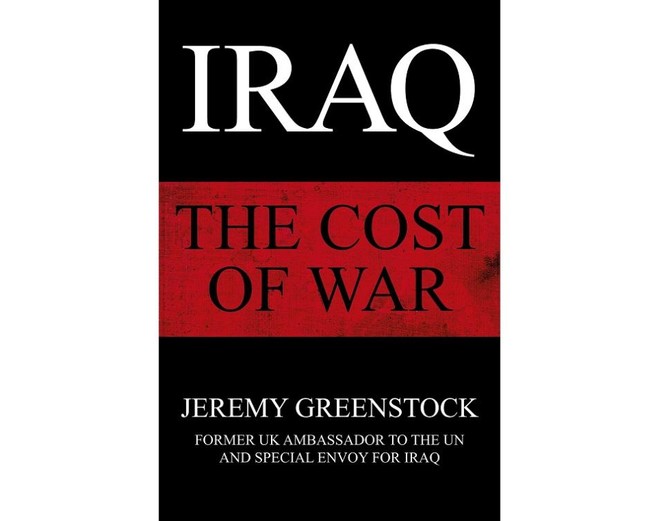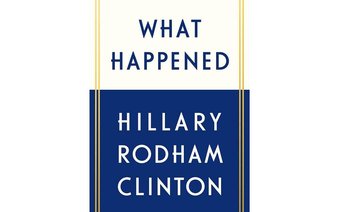For reasons unforeseen at the time of writing, “Iraq the Cost of War” was not released in 2005 as planned. That same year, the British Secretary of State for Foreign and Commonwealth Affairs Jack Straw asked author Jeremy Greenstock to delay the publication until the ministers concerned left their posts. This was followed by the Iraq Inquiry, a British Public inquiry into the nation’s role in the Iraq War. After a seven-year investigation, Sir John Chilcot delivered his findings in 2016 and Greenstock decided the time had finally come to publish his account.
The book, which has just been published in paperback form, presents an in-depth understanding, in narrative form, of what really went on behind the scenes at the UN and in Baghdad. “I believe there is still room for a story to be told that sets in live context the decisions taken and the mistakes committed, and perhaps makes more intelligible the swirl of conflicting considerations that weighed on political leaders at the time,” Greenstock writes. For that reason, he kept the original text.
Greenstock, as UK permanent representative to the United Nations ambassador in New York, shows us the intricacies of foreign policy decision making in the lead-up to the Iraq invasion. And then, as special envoy for Iraq, the UK’s highest authority on the ground, he was a witness to the acute lack of post-war preparation in Iraq. First and foremost, this seasoned diplomat asserts a truth that runs like a mantra throughout the book — “the story of Iraq is the story of the application of American power.”
The United States’ involvement in Iraq comes as no surprise. Greenstock acknowledges that as a young diplomat he discovered that the US has two preserves, superpower politics and the Middle East peace process. Whereas the diplomatic world recognizes the French and the British inherited privileged relations with the Middle East that no other foreigners possessed, the American administration has never hidden its distaste for the European colonial past.
Another important point is that no political strategy can be discussed in Iraq without bringing up the Palestinian question. Iraqi people, known for their nationalistic feelings, would feel hostile to an American presence in their country if the US would not contribute to improving the Palestine situation, according to the book.
However, there were no indications that a political change in Iraq would trigger change in the Middle East and the road toward Arab-Israeli peace does not run through Baghdad. However, Greenstock had sensed from the beginning that the outcome in Iraq would exert a broader influence on the region.
If we go back in time, we discover that the harshest sanctions ever imposed against a state were adopted against Iraq under UN Resolution 687 until full reparations for the damage done to Kuwait were repaid and all Iraqi weapons of mass destruction (WMD) had been accounted for.
General sanctions tend to affect the population at large, so a government takes measures to help its people avoid harm. Saddam Hussein did exactly the opposite, he used his people’s suffering to condemn the UN’s resolution. As a result, the Iraqi population suffered a lot from food deprivation, especially the children, and they blamed the US.
The big question at this point is why did Hussein risk a devastating invasion of his country by lying about his actual weapons capacity? Did he want to give the impression that he was a champion of Arab causes? By projecting an image of toughness and a will not to comprise, he wanted the world to know that he remained a challenge to the superpowers and he played a role on the world stage, perhaps. “There is not a shadow of doubt whatsoever that Iraq had long harbored ambitions to develop a WMD capability and had actually used chemical weapons in the 1980s. Saddam Hussein could have used chemical weapons in 1991, but chose not to,” writes Greenstock.
The problem with Hussein is that nobody knew what was going on in his mind. Nobody knew whether he was lying or telling the truth and this explains why there was not a greater opposition to pre-emptive action in the United Nations Security Council and elsewhere. The French and the Russians believed the inspectors had not been given enough time and they also hoped that more time would get the Iraqi leader to admit the truth. The French and Russians were also not the only ones to warn the US not to flout international order and not to initiate an invasion of Iraq without a prior discussion in the Security Council.
Tony Blair’s speech on March 18, 2003, one of the best speeches of his political career, sealed the decision to intervene in Iraq. The argument was based on the unfounded assumption that Iraq had hidden stockpiles of WMDs. “That does not alter the fact that Iraq was in breach of UN resolutions. But it does magnify the accusation that the punishment was out of proportion to the offense,” writes Greenstock.
No one anticipated that the Iraqi forces would be defeated so easily. The coalition led by the US did not do much better. The American and British authorities displayed an inability to control — “we lost the initiative in the early weeks when we failed to secure the country. The new Iraq has not yet recovered from that mistake,” writes Greenstock. President George W. Bush also never allocated the funds and the resources needed to secure a successful future for the Iraqi people. The US failure in Iraq reminds us of how the Americans handled the Russians after the Cold War — the apparent lack of diplomacy triggered feelings of resentment and humiliation, which paved the way for Vladimir Putin to take power and reestablish Russia as a superpower on the world map.
Greenstock wrote the epilogue to this book just before it was submitted for publication. Eleven years had passed and the world had changed, presenting an opportunity to measure the impact of the war in Iraq on the countries involved in it. Iraqis have paid a high price for the promise of peace and freedom, which remains elusive, and even its future within its UN-approved borders is not yet secured.
Greenstock also believes that Blair did not respect the domestic interests of the British. “I think that Blair going with the Americans on Iraq has, in some ways, done more damage to the UK than (former British Prime Minister Harold) Wilson not going with the Americans in Vietnam,” he said in an interview with the Huffington Post.
Greenstock is very critical of American mistakes, saying: “To most people on the planet, it is unacceptable for the US on its own to interpret international legitimacy,” but he concludes that “a world without an America in top form is always going to face a poorer and more threatened future.”
Book Review: Recounting the cost of war in Iraq
Book Review: Recounting the cost of war in Iraq

What We Are Reading Today: ‘All the Lovers in the Night’

- Loneliness and the longing for connection sit at the heart of the novel, alongside clear-eyed examination of the ways people wound one another, sometimes unintentionally and sometimes through their own inaction
Author: Mieko Kawakami
One of my recent reads was “All the Lovers in the Night” by Mieko Kawakami, translated from Japanese by Sam Bett and David Boyd. With its contemplative, poetic yet restrained style, the 2022 novel feels best suited to late nights or unhurried stretches of reading.
The story follows Fuyuko, a copyeditor in her thirties living a life marked by isolation. Her days pass in careful routine until she meets Mitsutsuka, an older man whose presence subtly begins to alter her perception of the world and of herself.
Fuyuko’s interior life is shaped by fear, hesitation and a profound sense of disconnection, captured in one of the novel’s most arresting lines: “I was so scared of failing, of being hurt, that I chose nothing. I did nothing.”
Loneliness and the longing for connection sit at the heart of the novel, alongside clear-eyed examination of the ways people wound one another, sometimes unintentionally and sometimes through their own inaction.
Kawakami is attentive to the small fractures of human relations, the choices that accumulate into regret, and the difficulty of naming desire after years of suppression.
Her writing style is introspective and measured, with a delicate, almost meditative prose that mirrors Fuyuko’s inner world. Through her characters, she offers subtle insight into contemporary Japanese psyche, particularly the tension between individual longing and the unspoken expectations that shape adulthood.
This underlying social commentary, especially around womanhood and what it means to be a woman in Japan, echoes Kawakami’s wider body of work and feels unmistakably her own.
Fuyuko emerges as a study in the search for meaning in our modern world with its strict benchmarks for life, intimacy and personal progress.
The novel’s deliberate pacing may test readers accustomed to momentum or plot-driven storytelling. Little happens in the conventional sense, and that sustained inward focus may not suit every reader.
Yet for those willing to linger, “All the Lovers in the Night” offers a space to sit with the beauty of precise, thoughtful writing.














